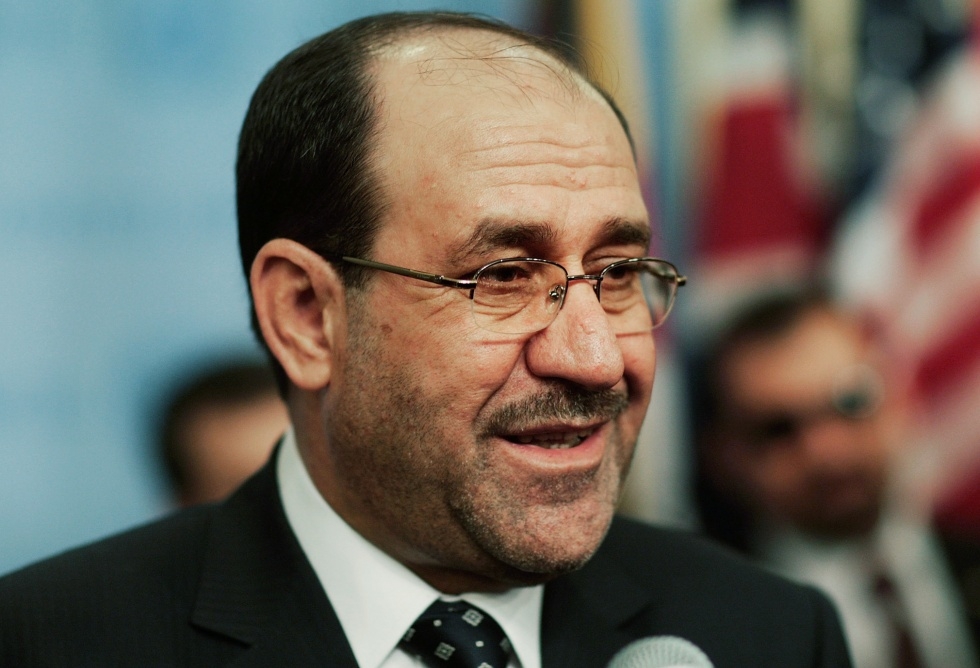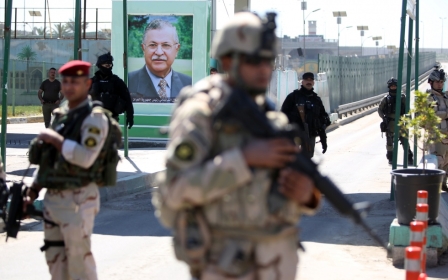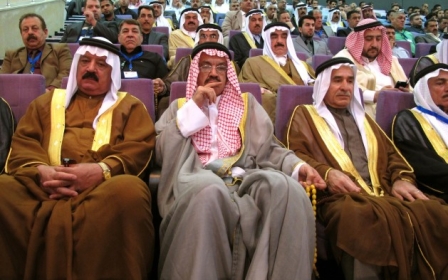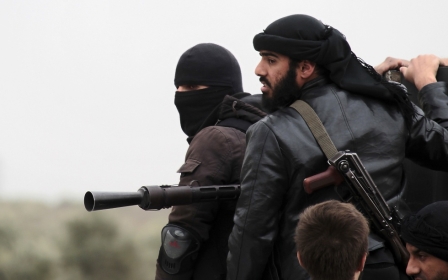Iraq: the false hope of a national unity government

As the military and political crisis in Iraq shows no sign of abating, much hope is being invested in a so-called national unity government. The thrust of this initiative centres on demands for Prime Minister Nouri al-Maliki to step down. More broadly, it is envisaged that the composition of the new government will be more responsive to Sunni demands and grievances.
But even if Maliki can be persuaded to step down, there is little reason to believe that the new Iraqi government will perform better than the incumbent. A wide range of domestic and regional factors militate against a relatively peaceful solution to Iraq’s escalating political and military crisis.
The pressing fault line in Iraq is communal and sectarian, not political. The nature and ambitions of Shiite-based and Sunni political forces - reinforced by popular fears and prejudice - are sufficiently conflicting to render the establishment of a peaceful and successful polity all but impossible. A new Iraqi prime minister is not going to be able to change this fundamental dynamic.
Beyond domestic politics, the prospects for a new Iraqi government (headed by Maliki or not) don’t look great, as the two powers with the biggest stakes in Iraq, namely Iran and the United States, cannot overcome their differences to promote stability in Iraq.
Maliki as scapegoat
While Iraq’s prime minister has performed poorly in some areas since first coming to office in May 2006, nevertheless he is not deserving of the near universal condemnation and tremendous pressure that has been directed at him since militant Sunni Arabs, led by the Islamic State of Iraq and the Levant (ISIL), triggered an insurgency by their takeover of Mosul on 10 June.
In recent days, criticism and pressure has come from every direction, even from Grand Ayatollah Sistani, who has mildly hinted that Maliki should consider stepping aside. This latter intervention, especially if it resonates in Tehran, may finally force Maliki’s hand.
Critics accuse Maliki of centralising power at the expense of local autonomy and of not doing enough to curb the sectarian tendencies of some Iraqi institutions, in particular of the security forces. More broadly, they accuse of him of lack of sufficient outreach to key political forces in the country.
Whilst these arguments are not wholly devoid of merit, they overlook the profound systemic, political and above all sectarian deficiencies and cleavages that torment Iraq. The post-war Iraqi constitution envisages a federal state, despite the fact that Iraq emerged from the war and the American-led occupation as a shattered state with extremely weak institutions. This is hardly the foundation on which to build federalism, which requires political strength, depth and sophistication.
Both the West and much of the Arab world misunderstand the nature of sectarianism in Iraq. The conventional wisdom which holds sway in Riyadh, Amman, London and Washington is that post-2003 Shiite-based political parties with strong ties to Iran exacerbated existing sectarian tensions by coming into conflict with the established tribal authorities in the Arab Sunni heartland of Iraq.
In fact the sectarian divide in Iraq is more communal than political. The notion that there was peaceful Sunni-Shiite coexistence during Saddam’s rule is little more than a myth. There may not have been widespread violence but tensions were simmering beneath the surface.
The Sunni-Shiite rift in Iraq crystallised during the Ottoman period even though its origins go back much further. Religious differences aside, the Sunni ruling classes perennially looked down on the Shiite as they were comparatively less educated and affluent. It is this heritage that has made it extremely difficult for Sunnis to come to terms with post-Saddam Iraq. Simply put, the Sunnis want to rule Iraq, an ambition that cannot be accommodated.
For their part, the Shiites over-reacted to their “liberation” in 2003. Haunted by a centuries old inferiority complex, the hundreds of thousands of Shiites who joined the army, the security forces and other bodies have brought their symbols, slogans and politics into state institutions; a state of affairs that is intolerable to the Sunnis.
For ten years these dynamics produced countless acts of terrorism, mostly in the form of car bombs and suicide bombings, as aggrieved Sunnis persistently targeted Shiite communal spaces and religious gatherings. Finally on 10 June, this terrorism campaign escalated to military conflict. Maliki may not have done enough to delay the outcome, but he cannot be blamed for Iraq’s sectarian conflict.
Wither Iraq?
The escalation of the conflict into open and large scale warfare, coupled with the opportunistic manoeuvring of the Kurdistan Regional Government, has touched off a flurry of speculation on the impending breakup of Iraq.
Bereft of an adequate understanding of Iraq, the United States is lobbying for Maliki’s departure in the forlorn hope of a new prime minister reversing, or at least containing the dynamics triggered by the ISIL-led assault on Mosul. The unfortunate fact is that neither Maliki nor any successor (no matter how superficially appealing) can hope to fully roll back the gains made by militant Sunnis, not unless they are willing to stomach widespread and prolonged bloodshed.
At present, containment is the name of the game, and there is no compelling reason as to why Maliki (who recently narrowly won a national election) is not suitable for this role. In fact, Maliki’s departure could make the situation worse, as a less experienced leader risks a rupture with Iran, thus potentially provoking an even more intense sectarian-based mobilisation in the Shiite camp.
On the larger question of Iraq’s viability as a sovereign state, much depends on the positions and actions of the Iranians and the Americans. Even though Iran and the United States cannot work together to stabilise Iraq, nevertheless in the short-term at least their interests coincide sufficiently to prevent the formal breakup of Iraq.
- Mahan Abedin is an analyst of Iranian politics. He is the director of the research group Dysart Consulting.
The views expressed in this article belong to the author and do not necessarily reflect the editorial policy of Middle East Eye.
Photo credit: Iraqi Prime Minister Nouri Al-Maliki (AFP)
Stay informed with MEE's newsletters
Sign up to get the latest alerts, insights and analysis, starting with Turkey Unpacked
Middle East Eye delivers independent and unrivalled coverage and analysis of the Middle East, North Africa and beyond. To learn more about republishing this content and the associated fees, please fill out this form. More about MEE can be found here.





